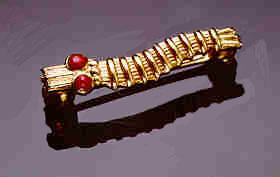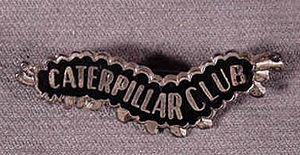imported>Chunbum Park |
imported>John Stephenson |
| (174 intermediate revisions by 8 users not shown) |
| Line 1: |
Line 1: |
| == '''[[British and American English]]''' == | | {{:{{FeaturedArticleTitle}}}} |
| ''by [[User:Ro Thorpe|Ro Thorpe]] and others <small>([[User:Hayford Peirce|Hayford Peirce]], [[User:John Stephenson|John Stephenson]], [[User:Peter Jackson|Peter Jackson]], [[User:Chris Day|Chris Day]], [[User:Martin Baldwin-Edwards|Martin Baldwin-Edwards]], and [[User:J. Noel Chiappa|J. Noel Chiappa]])</small>''
| | <small> |
| ----
| | ==Footnotes== |
| Between '''[[British English]] and [[American English]]''' there are numerous differences in the areas of [[lexis|vocabulary]], [[spelling]], and [[phonology]]. This article compares the forms of British and American speech normally studied by foreigners: the former includes the [[Accent (linguistics)|accent]] known as [[Received Pronunciation]], or RP; the latter uses [[Midland American English]], which is normally perceived to be the least marked American [[dialect]]. Actual speech by educated British and American speakers is more varied, and that of uneducated speakers still more. [[Grammar|Grammatical]] and lexical differences between British and American English are, for the most part, common to all dialects, but there are many regional differences in pronunciation, vocabulary, usage and slang, some subtle, some glaring, some rendering a sentence incomprehensible to a speaker of another variant.
| | {{reflist|2}} |
| | | </small> |
| American and British English both diverged from a common ancestor, and the evolution of each language is tied to social and cultural factors in each land. Cultural factors can affect one's understanding and enjoyment of language; consider the effect that [[slang]] and [[double entendre]] have on humour. A joke is simply not funny if the [[pun]] upon which it is based can't be understood because the word, expression or cultural icon upon which it is based does not exist in one's variant of English. Or, a joke may be only partially understood, that is, understood on one level but not on another, as in this exchange from the [[Britcom]] ''[[Dad's Army]]'':
| |
| | |
| Fraser: Did ya hear the story of the old empty barn?
| |
| Mainwaring: Listen, everyone, Fraser's going to tell a story.
| |
| Fraser: The story of the old empty barn: well, there was nothing in it!
| |
| | |
| Americans would 'get' part of the joke, which is that a barn that is empty literally has nothing in it. However, in Commonwealth English, 'there's nothing in it' also means something that is trivial, useless or of no significance.
| |
| | |
| But it is not only humour that is affected. Items of cultural relevance change the way English is expressed locally. A person can say "I was late, so I ''Akii-Bua'd'' (from [[John Akii-Bua]], Ugandan hurdler) and be understood all over East Africa, but receive blank stares in [[Australia]]. Even if the meaning is guessed from context, the nuance is not grasped; there is no resonance of understanding. Then again, because of evolutionary divergence; people can believe that they are speaking of the same thing, or that they understand what has been said, and yet be mistaken. Take adjectives such as 'mean' and 'cheap'. Commonwealth speakers still use 'mean' to mean 'parsemonious', Americans understand this usuage, but their first use of the word 'mean' is 'unkind'. Americans use 'cheap' to mean 'stingy', but while Commonwealth speakers understand this, there is a danger that when used of a person, it can be interpreted as 'disreputable' 'immoral' (my grandmother was so ''cheap''). The verb 'to table' a matter, as in a conference, is generally taken to mean 'to defer', in American English, but as 'to place on the table', i.e. to bring up for discussion, in Commonwealth English.
| |
| | |
| English is a flexible and quickly-evolving language; it simply absorbs and includes words and expressions for which there is no current English equivalent; these become part of the regional English. American English has hundreds of loan words acquired from its [[immigration|immigrants]]: these can eventually find their way into widespread use, (''[[spaghetti]]'', ''mañana''), or they can be restricted to the areas in which immigrant populations live. So there can be variances between the English spoken in [[New York City]], [[Chicago]], and [[San Francisco]]. Thanks to Asian immigration, a working-class [[London|Londoner]] asks for a ''cuppa cha'' and receives the tea he requested. This would probably be understood in [[Kampala]] and [[New Delhi]] as well, but not necessarily in [[Boise]], [[Idaho]].
| |
| | |
| Cultural exchange also has an impact on language. For example, it is possible to see a certain amount of Americanization in the British English of the last 50 years. This influence is not entirely one-directional, though, as, for instance, the previously British English 'flat' for 'apartment' has gained in usage among American twenty-somethings. Similarly the American pronunciation of '[[aunt]]' has changed during the last two decades, and it is considered classier to pronounce 'aunt' in the [[Commonwealth]] manner, even for speakers who continue to rhyme 'can't' and 'shan't' with 'ant'. [[Australian English]] is based on the language of the Commonwealth, but has also blended indigenous, immigrant and American imports.
| |
| | |
| Applying these same phenomena to the rest of the English-speaking world, it becomes clear that though the "official" differences between Commonwealth and American English can be more or less delineated, the English language can still vary greatly from place to place.
| |
| | |
| ''[[British and American English|.... (read more)]]''
| |

The Irvin pin. The eyes have always been red, but there are
urban legends about the meanings of other colors.

A pin from another company, possibly Switlik or Standard Parachute. This style is common in catalogs and auctions of military memorabilia.
The Caterpillar Club is an informal association of people who have successfully used a parachute to bail out of a disabled aircraft. After authentication by the parachute maker, applicants receive a membership certificate and a distinctive lapel pin.
History
Before April 28, 1919 there was no way for a pilot to jump out of a plane and then to deploy a parachute. Parachutes were stored in a canister attached to the aircraft, and if the plane was spinning, the parachute could not deploy. Film industry stuntman Leslie Irvin developed a parachute that the pilot could deploy at will from a back pack using a ripcord. He joined the Army Air Corps parachute research team, and in April 1919 he successfully tested his design, though he broke his ankle during the test. Irvin was the first person to make a premeditated free fall jump from an airplane. He went on to form the Irving Airchute Company, which became a large supplier of parachutes. (A clerical error resulted in the addition of the "g" to Irvin and this was left in place until 1970, when the company was unified under the title Irvin Industries Incorporated.) The Irvin brand is now a part of Airborne Systems, a company with operations in Canada, the U.S. and the U.K.[1].
An early brochure [2] of the Irvin Parachute Company credits William O'Connor 24 August 1920 at McCook Field near Dayton, Ohio as the first person to be saved by an Irvin parachute, but this feat was unrecognised. On 20 October 1922 Lieutenant Harold R. Harris, chief of the McCook Field Flying Station, jumped from a disabled Loening W-2A monoplane fighter. Shortly after, two reporters from the Dayton Herald, realising that there would be more jumps in future, suggested that a club should be formed. 'Caterpillar Club' was suggested because the parachute canopy was made of silk, and because caterpillars have to climb out of their cocoons and fly away. Harris became the first member, and from that time forward any person who jumped from a disabled aircraft with a parachute became a member of the Caterpillar Club. Other famous members include General James Doolittle, Charles Lindbergh and (retired) astronaut John Glenn.
In 1922 Leslie Irvin agreed to give a gold pin to every person whose life was saved by one of his parachutes. By 1945 the number of members with the Irvin pins had grown to over 34,000. In addition to the Irvin Air Chute Company and its successors, other parachute manufacturers have also issued caterpillar pins for successful jumps. Irvin/Irving's successor, Airborne Systems Canada, still provides pins to people who made their jump long ago and are just now applying for membership. Another of these is Switlik Parachute Company, which though it no longer makes parachutes, still issues pins.

